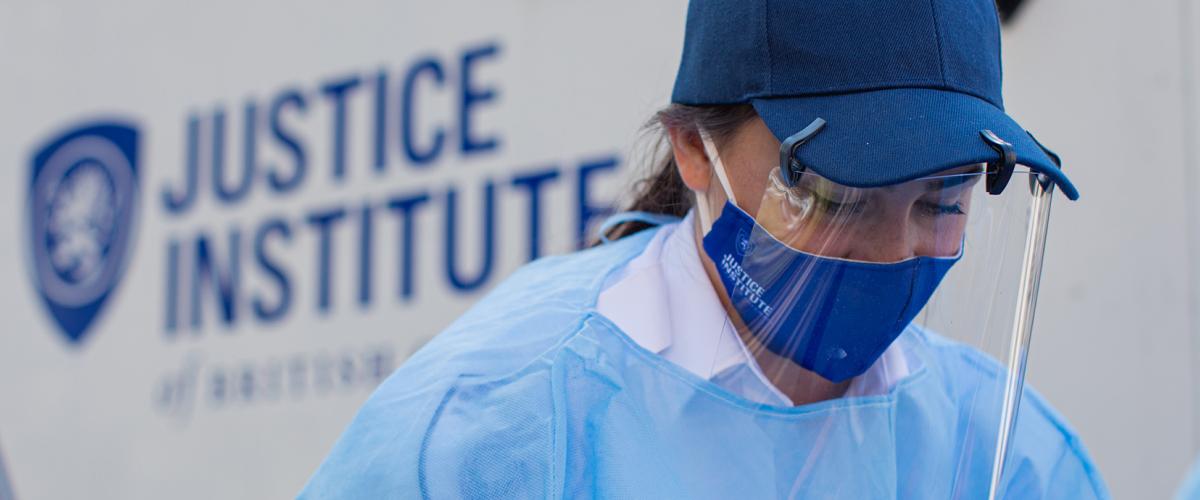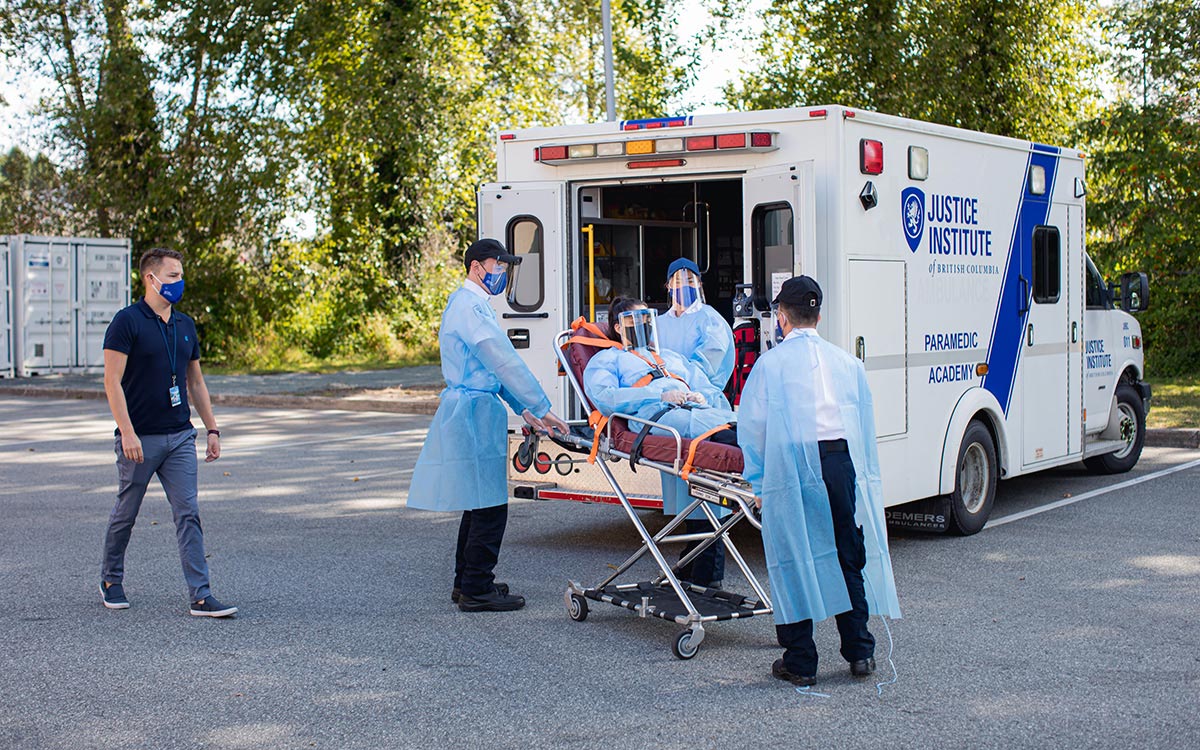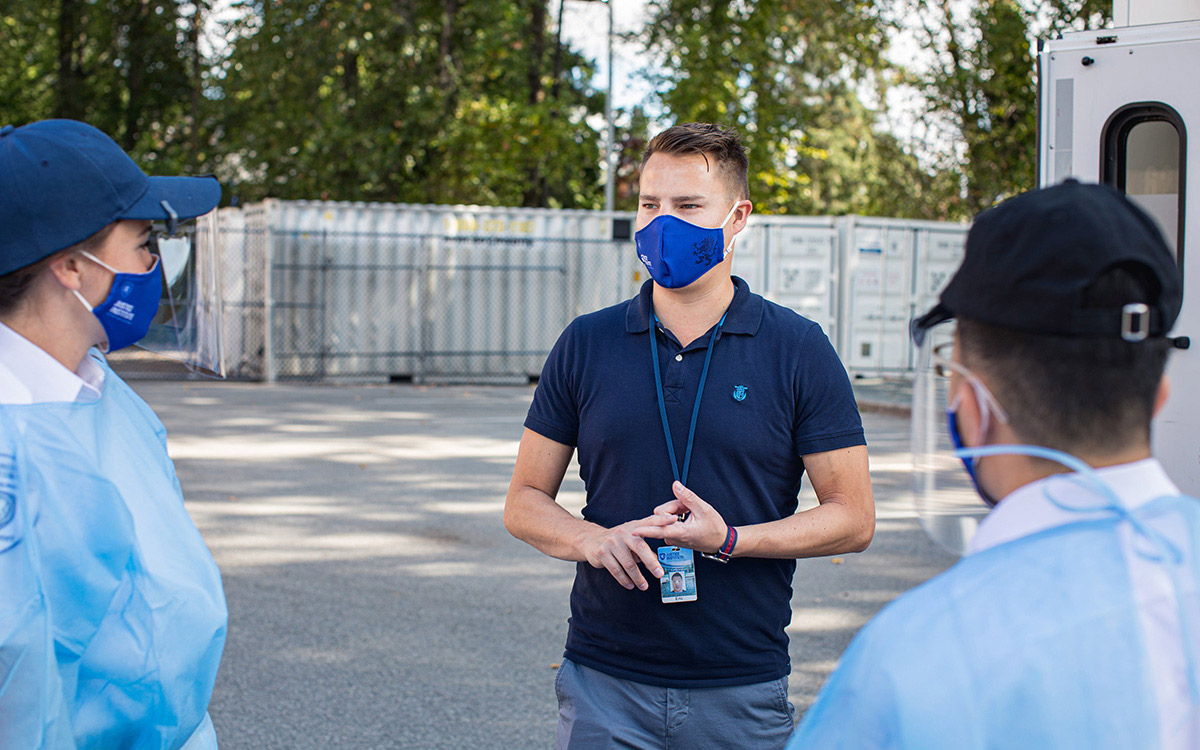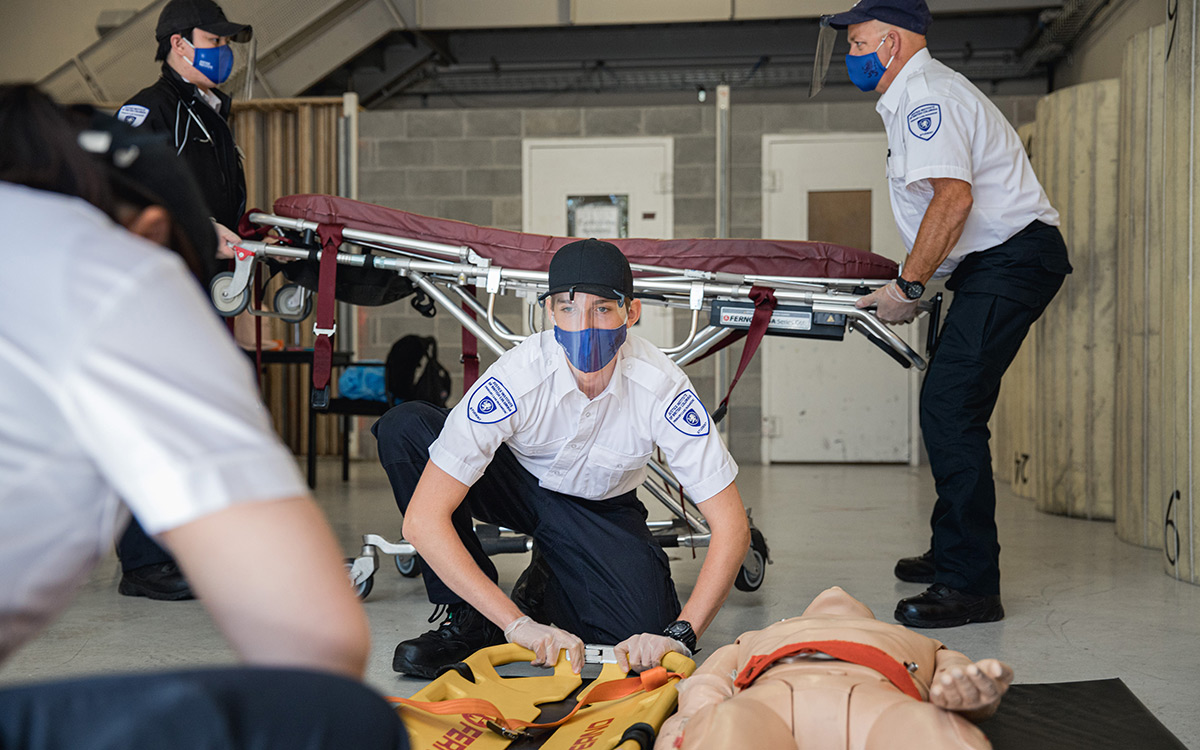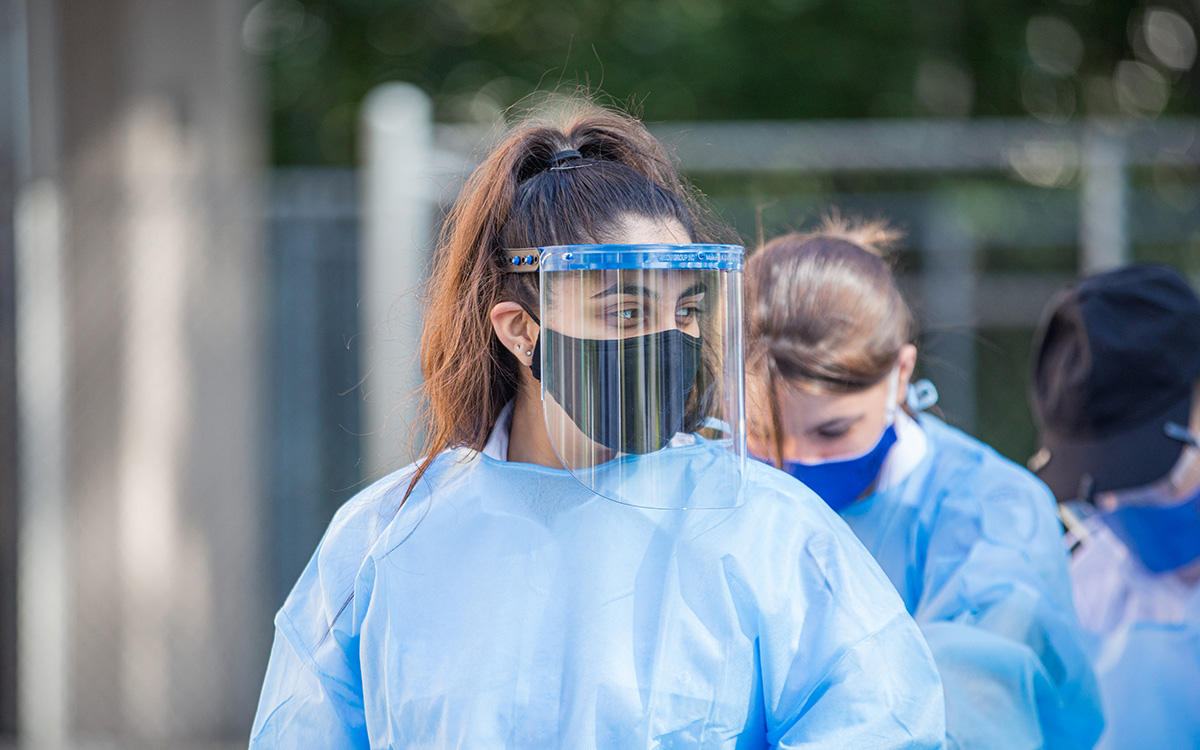When the COVID-19 pandemic was declared in March, classes at the Justice Institute of British Columbia (JIBC) were suspended, just as many aspects of the economy and society were paused to slow the spread of the virus.
Students in JIBC’s Primary Care Paramedic (PCP) program were sent home while instructors and Institute staff developed their plans. “We decided that we wanted to keep the students that were in class moving forward,” recalled Eric McConaghy, Lead Instructor for the PCP program at JIBC’s New Westminster campus.
The result was a stop-gap online program to allow instructors to continue teaching the theory portion of the program through a videoconferencing system.
“Our teacher did a really good job, we went so in-depth on our anatomy and pathophysiology and our knowledge base,” said Paula Huntley, 32, one of the students in that cohort. “We got to know a lot more than I think a lot of cohorts because we had that time. That’s all we could do.”
At the end of June, the cohort returned to the New Westminster campus for the practical portion of the program, with new safety protocols in place based on guidelines set out by the Provincial Health Officer, WorkSafeBC and the Ministry of Advanced, Education, Skills & Training.
The program moved to a larger space, to allow for physical distancing, in the Dr. Donald B. Rix Public Safety Simulation Building at the New Westminster campus. In addition to requiring students and instructors to complete daily health assessments for signs of COVID-19 risks or symptoms, precautions include: room occupancy restrictions; limits on close contact between students during training simulations when they are also required to wear personal protective equipment (PPE); and requirements for frequent hand-washing and disinfection of training equipment in addition to the normal infection control measures taught.
Huntley, who is currently on the practicum portion of the program, said she feels the instructors “really stepped up to the plate through all this” and that the adaptations even had some additional benefits.
For instance, her cohort was limited to working only with the same designated partners throughout the hands-on section. “We got to work so long together that we could read each other’s body language and know what they needed,” she said. “That’s what you want going into the field.”
Huntley’s class has been taking an extended time to complete the program due to pandemic-related delays such as ensuring safety measures are in place and BC Ambulance Service (BCAS) wanting to ensure there was enough PPE before they took students on shifts.
“I think the team is setting us up for success, it’s just been a drawn out process,” she said.
[The instructors] really want us to succeed and do well. I feel like they're really taking COVID seriously ... I feel like it's safe here
The groundwork put in for her cohort is paying dividends for subsequent classes, said McConaghy, who noted they are following the exact same path as was established for that first COVID-19 class. Moving to the larger space allows the program to accommodate up to 24 students, the same as before the pandemic, but with some choosing to defer to a later date, the current cohort now numbers 13 students.
While Huntley’s cohort was far enough along in the program that they could continue using only mannequins as practice patients, it was determined that for subsequent classes, the teaching of certain patient assessments and skills would need to include students practising on each other. Following a risk assessment, safety requirements were established for this aspect of simulation training which also helps students develop teamwork and communication skills. Students are restricted to 20-minute increments during which they can practise these elements on their teammates before returning to physical distancing. Other requirements include students remaining in their designated teams, washing or sanitizing hands beforehand and afterwards, and wearing assigned PPE when in close contact with each other.
The use of PPE has always been a part of the program because paramedics have been using PPE for a very long time, McConaghy said. While before the pandemic it wasn’t worn for every training simulation, it is now although because they’re wearing non-medical masks rather than the N95 masks or full respirators as they would out in the field, they can’t stay too close for too long.
Almost all the PCP instructors are practising paramedics and Paramedic Academy staff regularly meet with BCAS officials to ensure they’re aware of the current rules and protocols. So while BCAS is continually adjusting protocols, JIBC instructors ensure their students know what is expected of them when they are working out in the field. There is also a continued emphasis on the Provincial Health Officer’s recommendations so students do what they can to stay safe outside of school as well.
PCP student Jessica Sandhu, 19, said the safety protocols mean students have to make the most of class time as they are no longer allowed to stay after class to practise skills, and they do spend more time working with mannequins during simulations due to time limits on close student contact.
But she’s been impressed at the continual emphasis on building good safety habits, from wearing PPE to washing hands, disinfecting equipment and physical distancing. “They want us to maintain a really high standard,” Sandhu said.
As for how the pandemic is affecting her paramedicine studies, “they really want us to succeed and do well,” she said of her instructors. “I feel like they’re really taking COVID seriously … I feel like it’s safe here.”
For more information on paramedic courses and programs, visit JIBC Paramedic Academy.
